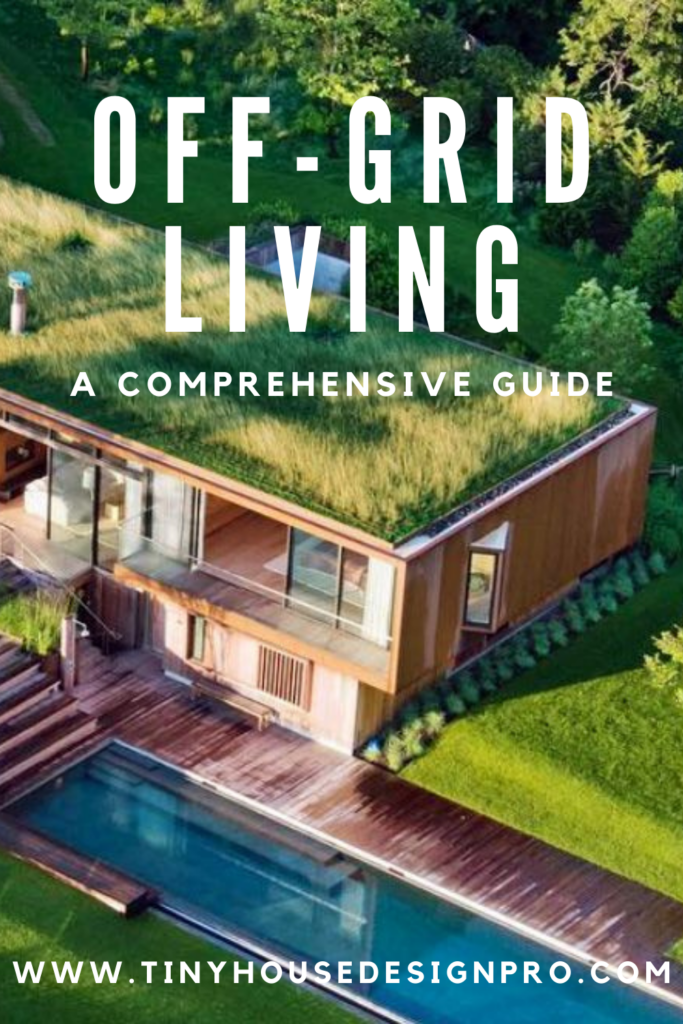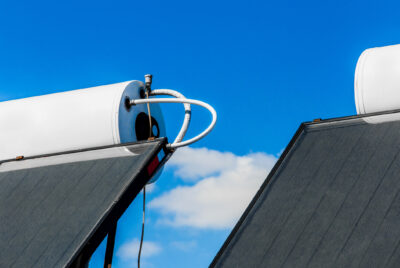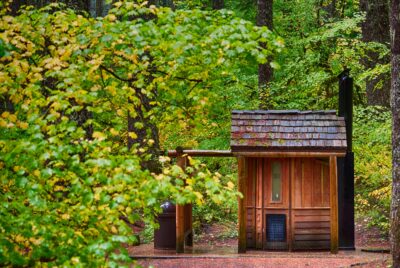Off Grid Living: A comprehensive Overview
Living off-grid is a profound departure from conventional living arrangements. It’s not merely a lifestyle choice but a profound commitment to self-reliance, ecological responsibility, and steadfastness in the face of adversity.The decision to embrace off-grid living embodies a convergence of ideals and aspirations. Whether your motivation stems from a deep-seated desire to shrink your environmental impact, seek refuge from urban living’s relentless pace, or fortify yourself against unforeseen crises.
Off-Grid Living is a Journey
It’s a journey that presents a tapestry of challenges and rewards, offering a profound sense of liberation amidst the demands of modern society. In this overview, we’ll delve into the intricacies of off-grid living, equipping you with the knowledge and tools necessary to embark on this transformative adventure. From essential equipment and techniques to invaluable insights for navigating the complexities of off-grid life, we’ll navigate this uncharted terrain together. We’ll pave the way for a more sustainable, resilient, and fulfilling existence.
Off-Grid Living: What is It?
Before diving into the nuts and bolts of off-grid living, it’s essential to understand what it entails. Living off-grid means disconnecting from public utilities such as electricity, water, and sewer systems, and relying on self-generated resources instead. This often involves harnessing renewable energy sources like solar or wind power, collecting and purifying rainwater, and managing waste through composting and recycling.
What are the Benefits?
The appeal of off-grid living lies in its many benefits, both tangible and intangible. By generating your own power and water, you can reduce your reliance on external sources and lower your monthly expenses. Additionally, living off-grid allows you to cultivate a deeper connection with nature, enjoy greater privacy and independence, and develop valuable skills in self-sufficiency and resourcefulness.
Must-Have Tools for Off-Grid Living
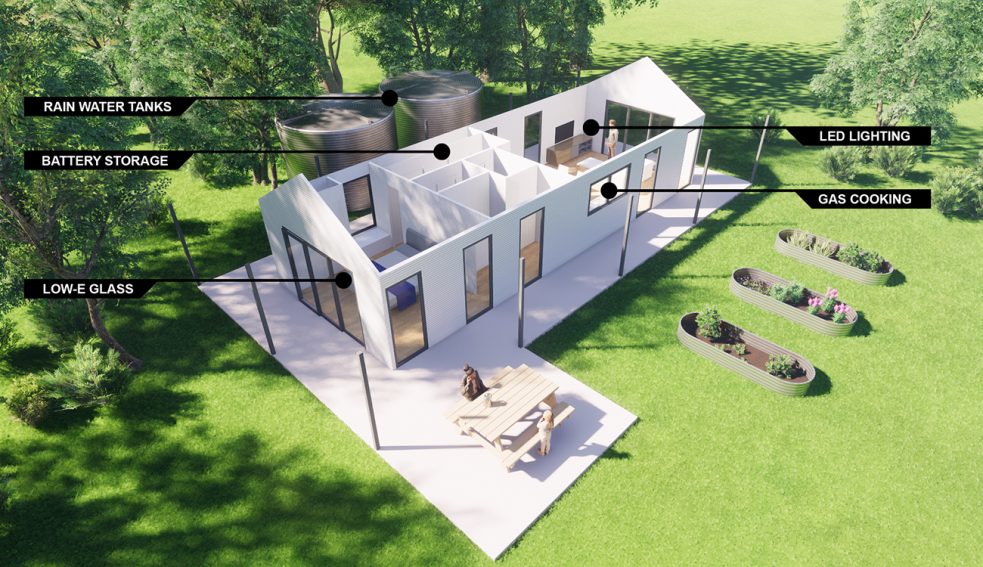
While the idea of living off-grid may conjure up images of rugged simplicity, the reality is that modern off-grid living often requires a range of specialized tools and equipment. Here are some essentials to consider:
- Solar Panels: Solar panels are a cornerstone of off-grid living, providing a reliable source of renewable energy to power your home. The initial cost of installing solar panels can vary depending on factors such as the size of your system and your location, but a basic setup typically ranges from $10,000 to $20,000.
- Battery Bank: A battery bank allows you to store excess solar energy for use when the sun isn’t shining. Deep-cycle batteries, such as lead-acid or lithium-ion batteries, are commonly used for this purpose. Expect to invest anywhere from $2,000 to $5,000 in a quality battery bank.
- Rainwater Harvesting System: Collecting and storing rainwater is essential for off-grid living, particularly in areas where access to clean water is limited. A rainwater harvesting system typically includes gutters, downspouts, and storage tanks. Costs can vary depending on the size of your system and the materials used, but budget around $1,000 to $3,000 for a basic setup.
- Composting Toilet: A composting toilet offers a sustainable alternative to traditional flush toilets, allowing you to convert human waste into nutrient-rich compost for use in gardening. Prices for composting toilets range from $500 to $2,000, depending on the model and features.
- Wood Stove or Pellet Stove: Heating your off-grid home during the colder months may require a wood stove or pellet stove. In addition to providing warmth, these stoves can also be used for cooking and heating water. Prices vary depending on the size and efficiency of the stove, but expect to pay anywhere from $1,000 to $3,000.
- Water Filtration System: Ensuring access to clean drinking water is crucial for off-grid living. A reliable water filtration system, such as a reverse osmosis filter or ceramic gravity filter, can remove contaminants and pathogens from your water supply. Costs range from $200 to $1,000, depending on the system’s capacity and features.
- Backup Generator: While renewable energy sources like solar and wind power are ideal for off-grid living, having a backup generator can provide peace of mind during periods of low sunlight or wind. Prices for generators vary depending on size and fuel type, but budget anywhere from $500 to $3,000 for a portable or standby generator.
Stay tuned for in-depth product reviews of the essential equipment needed for off-grid living! I’ll be diving deeper into each item mentioned, providing detailed insights, comparisons, and recommendations to help you make informed decisions for your off-grid setup. From solar panels to battery banks, rainwater harvesting systems to composting toilets, wood stoves to water filtration systems, and backup generators. I’ll explore the pros and cons of various options, their features, and their suitability for different off-grid scenarios. Whether you’re a seasoned off-grid enthusiast or just beginning your off-grid journey, these reviews will be your guide to finding the best tools and equipment to support your self-sufficient lifestyle. Stay tuned for expert advice and comprehensive reviews coming soon!
Tips for Off-Grid Living Success
Successfully transitioning to off-grid living requires careful planning, adaptation, and a willingness to embrace a simpler way of life. Here are some tips to help you make the most of your off-grid experience:
- Start Small: If you’re new to off-grid living, consider starting small and gradually expanding your self-sufficiency efforts over time. Focus on mastering essential skills such as energy management, water conservation, and food preservation before tackling larger projects.
- Invest in Quality: When it comes to off-grid equipment and infrastructure, quality matters. Invest in durable, energy-efficient appliances and systems that will stand the test of time and require minimal maintenance.
- Embrace Sustainability: Off-grid living is inherently sustainable, but there are always ways to reduce your environmental impact further. Practice sustainable gardening, composting, and waste reduction techniques to minimize your carbon footprint and live in harmony with nature.
- Stay Flexible: Off-grid living can be unpredictable, with challenges ranging from inclement weather to equipment malfunctions. Stay flexible and adaptable, and be prepared to troubleshoot and problem-solve as needed.
It’s Critical to be Prepared: As you can see above and below, navigating the complexities of off-grid life requires a blend of practical know-how, adaptability, and a willingness to embrace the unexpected. Below are 7 key necessities that you must stay on top of:
Energy Management: Efficient energy management is paramount when living off-grid. Learn to balance your energy consumption with your energy production, prioritizing essential tasks and appliances to avoid exhausting your power reserves. Invest in energy-efficient appliances and lighting to minimize your electricity usage and maximize the effectiveness of your renewable energy systems.
Water Conservation: Water is a precious resource when living off-grid, so it’s essential to conserve it whenever possible. Implement water-saving fixtures, repair leaks promptly, and practice mindful water usage habits such as taking shorter showers and collecting rainwater for non-potable uses. Consider installing a greywater recycling system to reuse water from sinks, showers, and laundry for irrigation or flushing toilets.
Food Production: Growing your own food is a cornerstone of off-grid living, providing a sustainable source of fresh produce and reducing reliance on external food sources. Start a vegetable garden, raise chickens for eggs and meat, or explore alternative farming methods such as aquaponics or permaculture. Experiment with preserving methods like canning, drying, and fermenting to extend the shelf life of your harvests.
Waste Management: Off-grid living necessitates a proactive approach to waste management, including recycling, composting, and responsible disposal. You can minimize waste generation by choosing products with minimal packaging, repairing items instead of replacing them, and repurposing materials whenever possible. Embrace composting to convert organic waste into nutrient-rich soil for your garden, and explore creative solutions for recycling and repurposing non-recyclable materials.
Community Building: While off-grid living offers solitude and independence, fostering connections with like-minded individuals can enhance your off-grid experience immeasurably. Join online forums, attend off-grid gatherings, and seek out local off-grid communities to share knowledge, resources, and camaraderie. Building a support network of fellow off-gridders can provide invaluable support, inspiration, and mutual assistance during challenging times.
Emergency Preparedness: Off-grid living inherently entails a degree of self-sufficiency and resilience, making it essential to be prepared for emergencies. Develop a comprehensive emergency plan that addresses potential risks such as extreme weather events, power outages, and medical emergencies. Stockpile essential supplies such as food, water, medical supplies, and backup power sources to weather unforeseen disruptions with confidence.
Continuous Learning: Off-grid living is a journey of continual learning and adaptation, requiring a willingness to acquire new skills and knowledge along the way. Embrace opportunities for self-education through books, online resources, workshops, and hands-on experience. Stay curious, open-minded, and proactive in seeking out solutions to the challenges you encounter, and don’t be afraid to experiment and innovate in pursuit of greater self-sufficiency and sustainability. By integrating the all of the above insights into your off-grid lifestyle, you’ll be better equipped to navigate the complexities and uncertainties of off-grid living with confidence, resilience, and a sense of purpose.
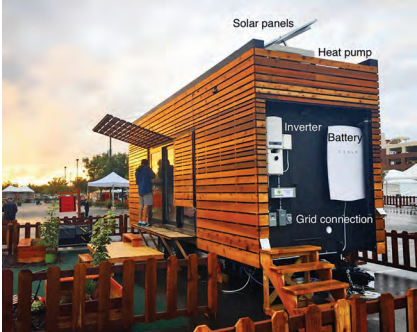
Speaking of education, there is an interesting article written by Siegner-Webster-Bolliger and Kammen that studied the Energy and Water Performance of an Off-Grid Tiny House in California. The paper analyzes the Tiny House In My Backyard project (THIMBY) through the design-build-occupy process over 3 years. It was designed to reduce energy and water consumption by 87%. They walk through their building systems in detail with photos and schematics which is really interesting. Lots of great tips and ideas can be taken from this study. To read more visit: Siegner-Webster-Bolliger-Kammen-TinyHouse-2022.pdf (berkeley.edu)
What type of Person/Personality Embraces Off-Grid Living?
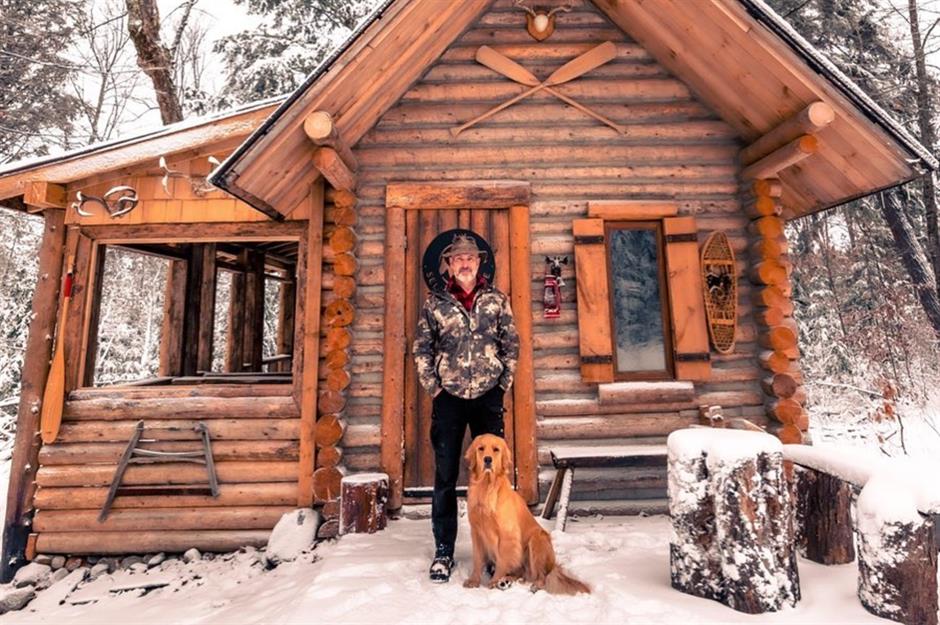
Off-grid living appeals to a diverse range of individuals with varying personalities, values, and motivations. While there’s no one-size-fits-all profile for the “ideal” off-grid dweller, certain personality traits and characteristics are often associated with those who embrace this lifestyle:
- Self-Sufficiency: Individuals who are drawn to off-grid living typically possess a strong sense of self-reliance and independence. They thrive on the challenge of providing for themselves and their families without relying on external utilities or resources.
- Adventurous Spirit: Off-grid living requires a willingness to embrace adventure and uncertainty. Those who gravitate towards this lifestyle often have a thirst for exploration, a love of nature, and a desire to chart their own course in life.
- Environmental Consciousness: Many off-grid enthusiasts are deeply committed to environmental sustainability and conservation. They seek to minimize their ecological footprint, protect natural resources, and live in harmony with the Earth.
- Resilience: Off-grid living comes with its fair share of challenges, from inclement weather to equipment malfunctions. Individuals who thrive in this environment are resilient, adaptable, and able to roll with the punches when things don’t go according to plan.
- Creativity and Resourcefulness: Off-grid living often requires creative problem-solving and thinking outside the box. Whether it’s finding alternative energy sources, repurposing materials, or devising innovative solutions to everyday challenges, off-gridders are adept at making the most of limited resources.
- Simplicity: Off-grid living encourages a simpler, more minimalist lifestyle focused on the essentials. Those who embrace this lifestyle value experiences over possessions, prioritize quality over quantity, and find fulfillment in the simple pleasures of life.
- Community-Mindedness: While off-grid living can be solitary at times, many off-gridders place a high value on community and connection. Whether it’s building relationships with like-minded neighbors, participating in cooperative ventures, or sharing knowledge and resources within the off-grid community, fostering connections is an important aspect of the off-grid lifestyle. There are many forums out there. I find this one very useful. Off Grid Living – How To Live Off The Grid, Homesteading & Survival
Ultimately, the type of person who embraces off-grid living is as diverse as the reasons for choosing this lifestyle. What unites them is a shared desire for freedom, self-sufficiency, and a deeper connection with themselves, their surroundings, and the natural world. Whether they’re seeking refuge from the pressures of modern society, pursuing a more sustainable way of life, or simply following their adventurous spirit, off-grid dwellers embody a spirit of independence, resilience, and ingenuity.
Conclusion
Off-grid living offers a pathway to greater self-sufficiency, sustainability, and freedom from the constraints of modern society. By harnessing renewable energy, conserving resources, and embracing a simpler way of life, individuals can create a fulfilling and resilient existence off the grid. With the right tools, techniques, and mindset, anyone can embark on the off-grid adventure of a lifetime. Embrace the journey with an open heart and a pioneering spirit, and you’ll discover a world of possibilities waiting to be explored off the beaten path.
FAQs:
Is off-grid living legal?
The legality of off-grid living varies depending on local zoning and building codes. Before embarking on an off-grid lifestyle, research the regulations in your area and obtain any necessary permits or approvals.
How do I handle waste disposal off-grid?
Off-grid waste disposal typically involves composting organic waste, recycling materials, and minimizing non-recyclable waste. Composting toilets are commonly used to manage human waste in an eco-friendly manner.
Can I still have modern amenities off-grid?
Yes, modern amenities such as internet access, hot water, and electrical appliances can be incorporated into off-grid living setups using renewable energy sources like solar power and propane.
What are the biggest challenges of off-grid living?
Some of the biggest challenges of off-grid living include managing energy and water resources efficiently, adapting to seasonal changes in weather and temperature, and maintaining equipment and infrastructure in remote locations.
Is off-grid living suitable for everyone?
Off-grid living requires a significant commitment to self-sufficiency, resilience, and adaptability. While it can be rewarding for those willing to embrace a simpler way of life, it may not be suitable for everyone, particularly those accustomed to modern conveniences and amenities.

